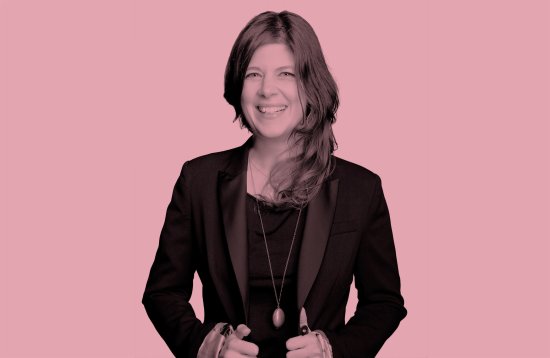
Lauren Lubin doesn’t identify as a woman or a man—and says competitions shouldn’t care
Correction appended, Oct. 7, 2015.
In 1977, after a court ruling, transgender tennis player Renee Richards was allowed to compete in the Women’s U.S. Open. In 2010, transgender golfer Lana Lawless won a federal lawsuit to change the Ladies’ Professional Golf Association’s rule that competitors be “female at birth” policy. That same year, Kye Allums became the first openly transgender man to compete in Division I NCAA athletics. And just a few months ago, Olympian and reality television star Caitlyn Jenner publicly came out as a transgender woman.
But as discussions about gender and sports become more open, it’s important to note that the majority of this conversation—in the world of sports, by the public at large, and even by many in the Lesbian, Gay, Bisexual, Transgender, Queer, Intersex, Asexual community—is almost exclusively hinged on a false binary: that you must fit into one of two categories, boy or girl.
[time-brightcove not-tgx=”true”]
What happens to the athletes who do not identify on this binary? Lauren Lubin, who played women’s college basketball for University of Colorado Boulder from 2003 to 2006, identifies as gender-neutral—one of many non-binary gender identities that, as the category implies, does not adhere to either male or female. Lubin (who uses they/them/theirs pronouns) played on a full scholarship until 2007, when the inner turmoil of playing on a women’s team while not identifying as female finally pushed Lubin to quit the team, lose the scholarship and leave competitive athletics for eight years.
Lubin’s experience is one that highlights a glaring omission in the conversation about gender and sports. Even if Lubin had been afforded the opportunity to play on the men’s basketball team, this would not have been a desirable solution. “No one was talking about anything beyond ‘man’ or ‘woman,’ not even beyond ‘gay’ or “straight,’” Lubin said. “So for me, it was just a feeling of invisibility and inability to communicate.”
As athletes like Lubin continue to seek out spaces in which to compete, policies are still focused exclusively on a binary system. NCAA regulations, for instance, allow for transmen to compete as men as soon as they have changed their gender. Transwomen, however, are allowed to compete only after they have been on hormone suppressants for a year.
Ashland Johnson, Director of Policy & Campaigns of Athlete Ally explains: “I’ve not heard anything of non-binary athletes because NCAA is only concerned with unfair advantage. They still think in terms of men and women. It’s how policies are written, it’s how Title IX is written. They only care about performance-enhancing.” The International Olympics Committee takes things even farther, stipulating that, in addition to meeting legal and hormone therapy requirements, transgender athletes must also have undergone sex reassignment surgery.
The gender binary affects athletes at all levels. Lubin returned to competitive athletics in 2014, this time as a runner, and has competed in marathons registered as both a man and a woman. “When I first picked up the [race] bib as a female, I got just as much, ‘Are you sure?’ as I did when I picked up as a male,” Lubin said. “Picking up the bib that has a very specific gender that isn’t me is the first difficult step that I still have to take every time I race, in addition to registering myself and running as a gender that I’m not.”
In 2015, in an effort to raise visibility for athletes like them and create a team community, Lubin formed a nonbinary running group in New York City. The group, called We Run, grew out of the greater We Exist movement for recognition of individuals who identify outside the gender binary. Lubin posits that the bodies of athletes are just that: athletes’ bodies, and that, in direct opposition to what current policies dictate, training and practice are the elements that determine skill, ability and advantage—not biology. “We assume that you have to have a certain body type to compete, but the reality is that anyone can compete,” Lubin said. “A runner’s body is someone who is running.”
There’s still a long way to go for better policies for LGBTQIA athletes—even for those whose identities do hinge on the binary—but changing the nature of the conversation is the first step. “You’re going to have to change,” Lubin said. “The reality is that our younger generations, and the people who are going to come after me are already existing, identifying, and living like me. They can’t be ignored.”
Russo is the founder of Everyone Is Gay, an organization that works to improve the lives of LGBTQ youth. Follow her on Twitter @kristinnoeline.
Correction: The previous version of this article misstated where Lubin played. It was University of Colorado Boulder.
[video id=PTozbbVN ]